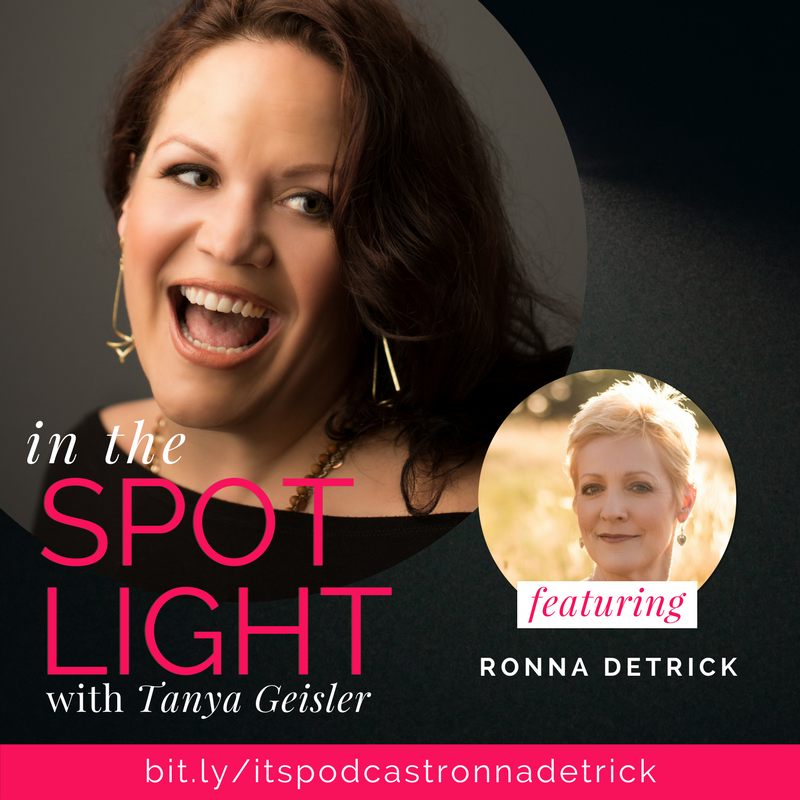In the Spotlight with Tanya Geisler is a weekly live show that shines a light on some of the biggest mindset challenges facing leaders and entrepreneurs today in their lives and in their work.
This week's guest is Dr Michelle Mazur (like lazer). Michelle Mazur, Ph.D. delivers audacious breakthroughs for speakers who want to stand out, be the best-in-class in their field, and position themselves in a category of one. She is the CEO of Communication Rebel and the author of Speak Up for Your Business. The speakers she works with have gone on to book speaking gigs across the United States, raise 3x the amount of money expected for the launch of a charity, and speak in front of world leaders and First Ladies. She lives in Seattle, WA with her adoring husband, 2 obsessive felines, and a huge collection of Duran Duran memorabilia.
WHAT WE TALKED ABOUT:
The intersection between speaking and the Imposter Complex
How Michelle feels the Imposter Complex when speaking even with (especially with) a PhD
The balance between structure and flow
Facing the lie of “I have nothing to say.”
The gap between dipping your toes in and diving in
Going on an information detox
The barriers people put in place to keep from taking the plunge
What people are afraid of when it comes to speaking
MICHELLE SAID//
Speaking is like riding a bike. You’re going to fall off, but it’s about learning something and getting back on.
There can be diminishing returns when it becomes about how great you are more than the audience experience.
There’s a lot of noise out there and if you’re really listening, you will stop yourself from saying what you need to say.
If someone is already talking about it, it’s great because it means it needs to be talked about. It just needs your unique spin.
The way to lead in your work: realize you do have something to say.
It’s time for you to hear your own voice so you can bring out what’s unique about you.
It’s an identity change when you fully decide to step into the role of Speaker.
It starts with one step not being on stage in front of 1,000 people.
You don’t have to have it all figured out to make it happen. You just have to put a little skin in the game.
On pitching: Figure out what they need, wrap your solution around it
TANYA SAID//
When we focus so much on the audience experience we lose the honey of what we are there to talk about and deliver.
We want to stand on the shoulders of our leaders and give them attribution, but we should look at their work as a springboard.
The velocity has come from work that has been done by people before us.
Under the false equivalencies is really fear.
Trust the intelligence in the room
LINKS + THINGS MENTIONED:
FIND MICHELLE
Each week Tanya and a guest star (an expert in their zone of genius) take on a topic that is UP in their work, or in the work of their clients. (Can’t step into your starring role when perfectionism, procrastination, boundaries, comparison, people pleasing, diminishment, and overwhelm are in the way, right?)
Listen to In the Spotlight with Tanya Geisler on iTunes or where you listen to your favorite podcasts!













